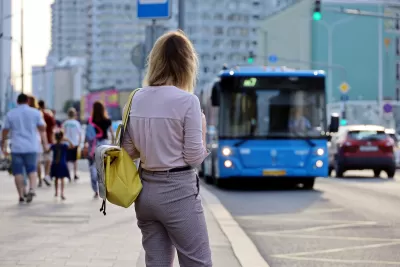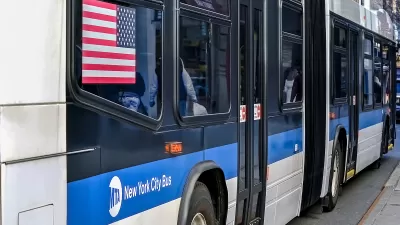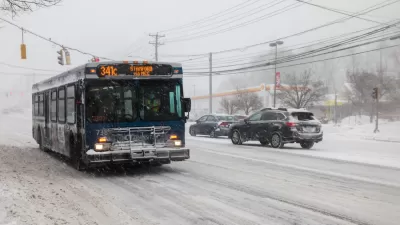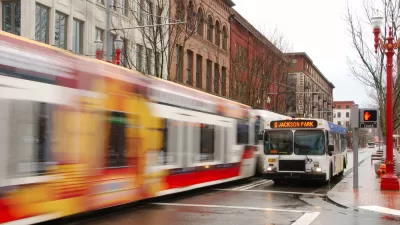Eliminating transit fares can have benefits that ripple across a local economy and improve livelihoods.

In a commentary in the Gazette Leader, Liam Crisan argues that free public transit has proven itself as an effective way to boost ridership, improve equity, and offer better mobility and connectivity.
In Albuquerque, ridership grew by 49.4 percent in the year following the city’s decision to make all its transit routes free. “Zero fares is a direct way to put cash in the pockets of those who need it most. Most of those who use ABQ RIDE are people of color, 74 percent are low-income and 73 percent don’t have access to a car.” Other cities with fare-free pilot programs include Richmond, Virginia, Kansas City, Missouri, and Olympia, Washington.
Eliminating transit fares can also save agencies money by eliminating fare collection mechanisms and enforcement costs and contribute to economic development. According to Crisan, “Every $1 invested generates $5 in economic returns. Better funding and more ridership means more jobs and increased commercial activity. By connecting people to medical, educational, professional, and community-building resources, affordable and accessible public transit changes lives.”
FULL STORY: Commentary: Free public transit would be a win-win solution

Study: Maui’s Plan to Convert Vacation Rentals to Long-Term Housing Could Cause Nearly $1 Billion Economic Loss
The plan would reduce visitor accommodation by 25,% resulting in 1,900 jobs lost.

North Texas Transit Leaders Tout Benefits of TOD for Growing Region
At a summit focused on transit-oriented development, policymakers discussed how North Texas’ expanded light rail system can serve as a tool for economic growth.

Why Should We Subsidize Public Transportation?
Many public transit agencies face financial stress due to rising costs, declining fare revenue, and declining subsidies. Transit advocates must provide a strong business case for increasing public transit funding.

How Community Science Connects People, Parks, and Biodiversity
Community science engages people of all backgrounds in documenting local biodiversity, strengthening connections to nature, and contributing to global efforts like the City Nature Challenge to build a more inclusive and resilient future.

Alabama: Trump Terminates Settlements for Black Communities Harmed By Raw Sewage
Trump deemed the landmark civil rights agreement “illegal DEI and environmental justice policy.”

Dear Tesla Driver: “It’s not You, It’s Him.”
Amidst a booming bumper sticker industry, one writer offers solace to those asking, “Does this car make me look fascist?”
Urban Design for Planners 1: Software Tools
This six-course series explores essential urban design concepts using open source software and equips planners with the tools they need to participate fully in the urban design process.
Planning for Universal Design
Learn the tools for implementing Universal Design in planning regulations.
City of Santa Clarita
Ascent Environmental
Institute for Housing and Urban Development Studies (IHS)
City of Grandview
Harvard GSD Executive Education
Toledo-Lucas County Plan Commissions
Salt Lake City
NYU Wagner Graduate School of Public Service





























